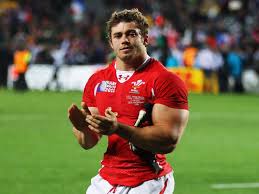How to get big for rugby
How Can I get Bigger for Rugby?
 I was working with a group of young players this week- pretty new to physical training.
I was working with a group of young players this week- pretty new to physical training.
I outlined the plan over the next 10-12 weeks. We are going to work on efficiency of movement, becoming more robust and develop your athleticism.
I then asked what did they think that involved… getting bigger was the immediate response.
Getting bigger without having a solid foundation of movement (or structural integrity ) will result in an immediate short term (about 12 weeks) improvement.
In other words the hypertrophy will take about 12 weeks to take effect and then another 12 weeks can be improved upon as well. So, at the end of nearly 6 months training you will be bigger.
3 key tips to getting bigger
- Lift heavy for longer. Do big lifts, under loads, for some time. Strongman training, deadlifts, squats are all good ways of gaining mass. If it is just pure mass, with little function, then you are best off learning from some of the Strength Training Legends.
- Eat well. There is no point eating junk food, you will become obese. Instead eat a well balanced diet that contains lots of natural foods. There are many sources of protein and testosterone that can be found in your normal diet. It is a lot cheaper than buying fat shakes too.
- Sleep. It is when you sleep that your body recovers and repairs itself. Most teenage rugby players are not getting enough sleep.
The Downside
 If your focus is purely on getting bigger, then there are 2 potential downsides:
If your focus is purely on getting bigger, then there are 2 potential downsides:
Injuries: if you are a rugby player you can look forward to shoulder and hamstring injuries because they are the 2 most common ones, and a season of rehab. Is it any wonder that the RFU injury audit shows an increase in rugby injuries?
Slow: If you don’t work on the application of strength through a full range of motion, and at speed, then you might end up getting slower as they found in Australia.
Conclusion
Hypertrophy work– getting bigger- is a goal in itself, but should not be the first thing that young rugby players work on.
If it is, it will hamper your Athletic Development and your rugby skills.
Younger players should look to grow up before growing out. You will be getting bigger as you get older.
Coaches who tell 14 year olds they need to get bigger, are missing the point.
This video shows some of the work I do with the tight five in rugby to make props and second rows more agile:

a slight correction to your piece on hypertrophy in which you say “shoulder and hamstring injuries because they are the 2 most common ones,”
that’s not quite true
the key thing about the injury audit – and what differentiates it from other studies – is that it is based on “risk”, simply defined by the equation occurrence x severity
the most common injury is thigh haematoma, but this is low risk, since whilst occurrence is high, severity is very low, so littel time is lost to training or playing
knee ligaments, shoulder instabilities (including dislocations) and hamstring strains and tears are the three highest risk injuries, in that they cause most time lost
Roy Headey – head of sports science at the RFU.
Thanks Roy, duly noted and happy to correct it.
Hey,
what about 16 year olds?
I am turning 17 in june and I am a skinny person which is
why I play wing. I think it would help me if I was bigger
in cases like tackling or if I get involved in a ruck.
So do you think I should try to gain some size and if yes which muscles should get most of my attention?
Yes, mass (size) is useful in the contact area, but only mass that can be used efficiently.
Having 6kg of extra fat is less useful.
Having big biceps, but not being able to keep hold of the ball because you get pushed over due to having skinny legs is also less useful.
Rather than look at which muscles to get bigger, look at which movements you can do under load: push, pull, squat, rotate, hinge and lunge.
Then look at how you can move faster and with greater agility, linked in with better rugby technique.
More detail here on how to design your own training programme: http://www.excelsiorgroup.co.uk/blog/how-take-charge-your-fitness-training
[…] How to get big for rugby […]
[…] 10 fitness myths and tips for rugby Common errors and misconceptions, what to do instead. How to get big for rugby Appropriate fitness training for young rugby players is more important than just putting on […]